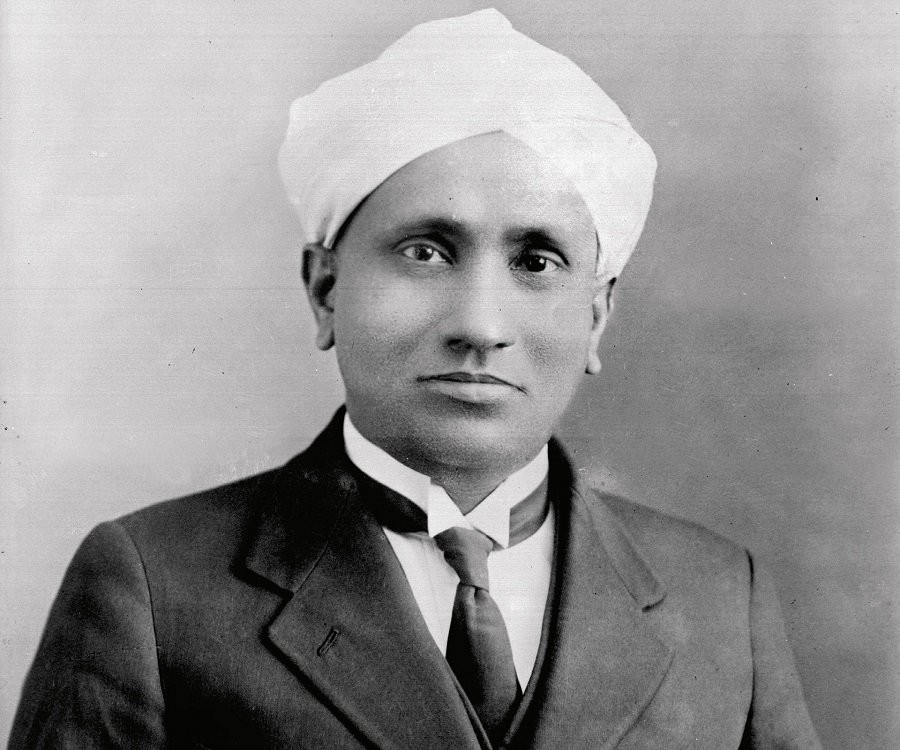


Today marks the birth anniversary of Sir Chandrasekhara Venkata Raman, the renowned physicist who made history as the first Asian to receive the Nobel Prize in Physics. Raman's early interest in science, nurtured by his father who was a lecturer in mathematics and physics, led him to pioneering research on the scattering of light, also known as the Raman Effect. This groundbreaking discovery revolutionized the study of material properties and molecular structure, solidifying Raman's legacy in the scientific community.
Celebrating the Legacy of C. V. Raman: India's First Nobel Prize Winner in Science
Sir Chandrasekhara Venkata Raman, better known as C. V. Raman, was an Indian physicist who made groundbreaking contributions to the field of spectroscopy. He is best known for discovering the Raman Effect in 1928, which won him the Nobel Prize in Physics in 1930, making him the first Asian to receive a Nobel Prize in the sciences.
Background
C. V. Raman was born in Trichinopoly, Madras Presidency (now Tiruchirappalli, Tamil Nadu) on November 7, 1888. He showed an early interest in science, inspired by his father, who was a lecturer in mathematics and physics. Raman completed his early education in India and then pursued his higher education in England at Trinity College, Cambridge. After returning to India in 1917, he took up a professorship at the University of Calcutta, where he continued his research in optics.
Raman Effect and Nobel Prize
In 1928, Raman made his groundbreaking discovery, which became known as the Raman Effect. He discovered that when light is scattered by molecules or atoms, some of the scattered light has a different wavelength than the original light. This phenomenon, known as Raman scattering, provided valuable information about the molecular structure and vibrational properties of matter.
Raman's discovery had a profound impact on the field of spectroscopy and laid the foundation for many important applications, such as the identification of chemical compounds, molecular fingerprinting, and the study of biological systems. In recognition of his seminal contribution, Raman was awarded the Nobel Prize in Physics in 1930. He shared the prize with his student, K. S. Krishnan.
Later Career and Legacy
After winning the Nobel Prize, Raman continued his research in optics and spectroscopy. He founded the Indian Academy of Sciences in 1934 and served as its president for many years. He also established the Raman Research Institute in Bangalore, which became a leading center for research in physics.
Raman was a respected scientist and a staunch promoter of science education. He was knighted in 1929 and received numerous awards and honors throughout his career. He is widely regarded as one of the greatest scientists of the 20th century and his legacy continues to inspire generations of scientists and students.
Top 5 FAQs and Answers
C. V. Raman was an Indian physicist who discovered the Raman Effect and became the first Asian to receive a Nobel Prize in the sciences.
The Raman Effect is a phenomenon in which light scattered by molecules or atoms has a different wavelength than the original light. This provides information about the molecular structure and vibrational properties of matter.
Raman was awarded the Nobel Prize in Physics in 1930 for his discovery of the Raman Effect.
The Raman Effect has numerous applications, including:
In addition to the Raman Effect, Raman also made significant contributions to the fields of optics, acoustics, and crystallography. He also founded the Indian Academy of Sciences and the Raman Research Institute.

In a recent family vlog, Indian celebrity couple Shoaib Ibrahim and Dipika Kakar shared their "natural" hair care routine for their son, using a homemade mask made with rice flour, flax seeds, and coconut oil. However, experts warn that what works for adults may not be suitable for babies, whose sensitive skin and scalp could react to the ingredients. While the ingredients may improve hair texture, they do not necessarily promote hair growth. Instead, a healthy diet and good scalp care are more important in maintaining healthy hair.

A recent consumer study has found multiple brands of soft contact lenses in the U.S. to contain "forever chemicals" that can be harmful to both the body and the environment. The study, conducted by the nonprofit organization Environmental Health Sciences, tested 18 varieties of popular contact lenses and found all of them to contain markers for PFAS. Brands such as Acuvue, Alcon, and CooperVision were among the list of affected products. This news serves as a cautionary lesson on the potential risks of overusing contact lenses.

On the birth anniversary of Dr. APJ Abdul Kalam, the ‘Missile Man’ of India, tributes pour in on social media celebrating his life, vision and impact. A visionary scientist, inspiring leader and true patriot, Dr. Kalam's humility, compassion and constant interaction with students continue to inspire generations. His tireless efforts in defense, science and youth empowerment have strengthened India's path towards self-reliance and his legacy continues to motivate young minds to dream big and work hard for the nation.

Recent studies have found that extreme heat, particularly when combined with high humidity, can have a significant impact on mental health. A study in India showed that when wet bulb temperature exceeded 27°C, the probability of reporting severe depression increased by 0.5%, even when the temperature was slightly lower. This finding is consistent with global reviews that have linked high temperatures to mood disorders, increased hospital admissions for psychiatric conditions, and even elevated suicide risk. The Lancet has also published evidence that rising temperatures worldwide are a growing threat to emotional and cognitive health.

In a meeting with university officials in Udaipur, Rajasthan Governor Hari Bhau Bagde stressed the importance of incorporating India's ancient knowledge traditions into academic research. He highlighted the deep repository of knowledge in India since ancient times and urged scholars and scientists to draw upon this tradition in their work. Bagde also suggested making ancient texts available in university libraries for study and research purposes, in order to shape the intellectual abilities and love for the nation among the younger generation.

John Clarke, Michel H. Devoret, and John M. Martinis have been awarded the 2025 Nobel Prize in Physics for their pioneering research into quantum mechanical tunnelling. Their discovery has opened new possibilities for quantum technologies, and will be formally presented on December 10, the anniversary of Alfred Nobel's death. This announcement follows the tradition of recognizing transformative contributions to science, and the award carries a prestigious prize of 11 million Swedish kronor.

The US-Japanese trio of Mary E Brunkow, Fred Ramsdell, and Shimon Sakaguchi have won the 2025 Nobel Prize in physiology or medicine “for their discoveries concerning peripheral immune tolerance". Through their research, they have shown how the immune system is kept in check and why serious autoimmune diseases do not affect everyone. Sakaguchi found a new class of T cells, while Brunkow and Ramsdell discovered the explanation behind a specific mouse strain's vulnerability to autoimmune diseases. Together, they have significantly advanced our understanding of immunology and autoimmune diseases.

Indian astronaut Shubhanshu Shukla, who recently completed a 20-day space mission, shared his insights and experiences at the convocation ceremony of Dr. APJ Abdul Kalam Technical University. He highlighted the importance of patience, focus, and the inevitability of change in achieving success, and urged the graduating class to actively contribute to shaping a fearless and ambitious India.

The Regional Meteorological Centre (RMC) in Chennai has issued a weather alert for parts of Tamil Nadu, with thunderstorms and light to moderate rainfall expected on Saturday. The alert was issued due to the strengthening of a cyclonic circulation in the Bay of Bengal, which is likely to intensify and form a low-pressure area. The system is expected to affect Tamil Nadu, Puducherry, and Karaikal, with some areas experiencing heavy rainfall and gusty winds. The public is advised to stay updated and take precautions, especially in hilly and western districts.

As a step towards advancing India's deep-sea research capabilities, the Union Science Minister announced a landmark contract with the International Seabed Authority to conduct mineral exploration in the Indian Ocean for the next 15 years. This move will not only help India in expanding its scientific knowledge about the deep sea but also has the potential to strengthen its position as a leading player in the international seabed mining industry.